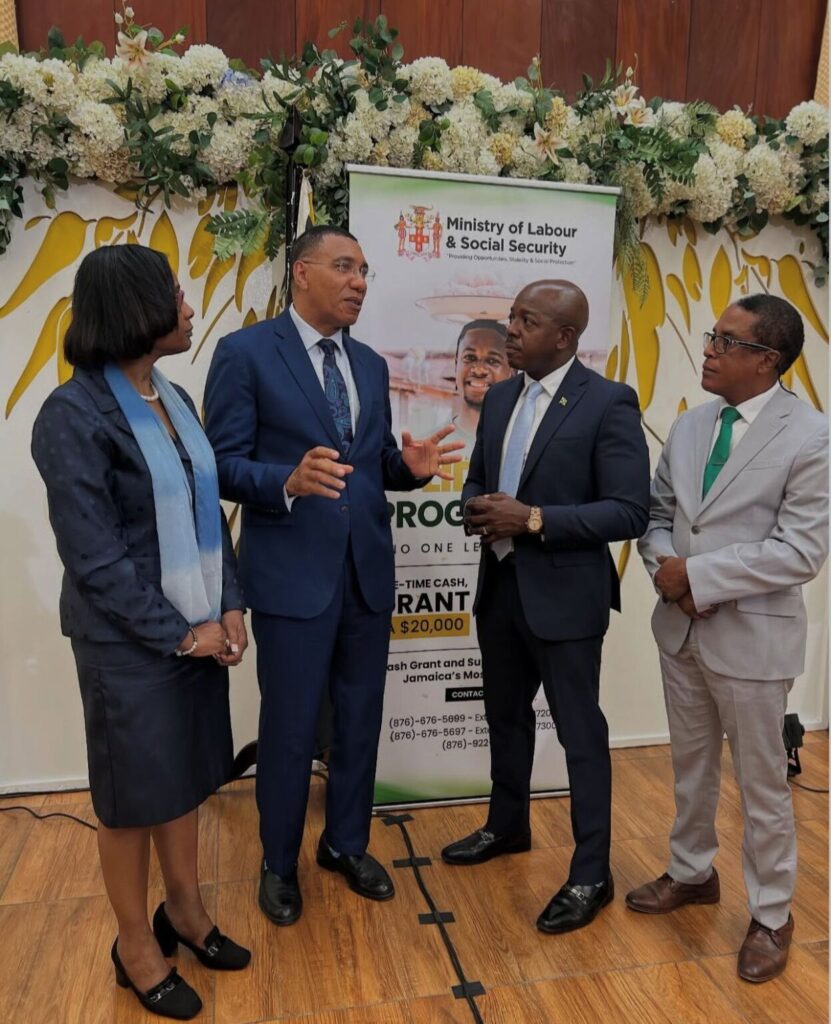Reaching the Forgotten: Government Confronts the Hidden Face of Poverty, Social Alienation

While traditional definitions of poverty focus on income and material deprivation, the Government of Jamaica is bringing attention to a more silent but equally harmful form of poverty, social alienation.
Prime Minister Andrew Holness is urging the nation to recognize that feeling excluded, overlooked, or invisible can be just as damaging as financial hardship.
“There are people in this country who look at what’s happening and say, ‘None of this is for me,’” the Prime Minister said during the launch of the Solidarity Programme today (June 25) at Jamaica House. “They feel that the society has moved on without them. That the system isn’t working for them. That no matter how hard they try, the doors remain closed.”
This emotional and psychological separation from national life, he explained, has real consequences.
“When people feel like they don’t belong, it’s easier for frustration to turn into anger or antisocial behavior. That’s when you hear the phrase, ‘Mi cyaah bada.’ That’s when we see people step back from society and adopt a mindset that contributes to disorder and underdevelopment.”
The Prime Minister described this sense of exclusion as a dimension of poverty that is often overlooked but one that must be urgently addressed if Jamaica is to achieve true progress.
“It’s not always about whether there is money in the pocket,” he explained. “It’s also about whether a person believes they matter, that their future is possible, and that their country sees them.”
To counter this, the government has deliberately crafted policies to rebuild connection and trust, particularly in rural and marginalized communities. Initiatives like the Solidarity Programme, as well as the expansion of HEART’s training offerings and the lifting of user fees for basic services, are part of a broader push to send a clear message: every Jamaican counts.
In the meantime, Prime Minister Holness acknowledged that the solution goes beyond policy.
“This is also about our national mindset,” he said. “We must challenge the belief that the government is only for certain people. That is simply not true. Our Jamaica is for every Jamaican, and we are making sure that those who have felt invisible for too long are finally being seen and served.”
Through the Solidarity Programme, 50,000 Jamaicans who are not currently receiving help from existing schemes will receive direct financial support, as well as assistance with critical documentation and referrals to access additional opportunities.
“This is a step toward reconnection,” the Prime Minister said. “It’s a reminder that no matter how long you’ve been on the margins, you still belong in the heart of this country.”